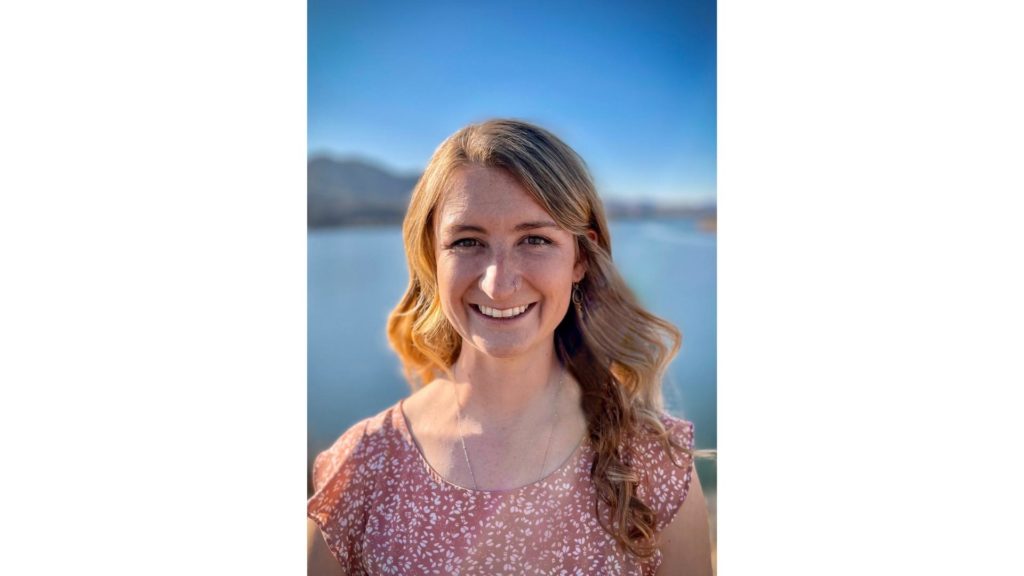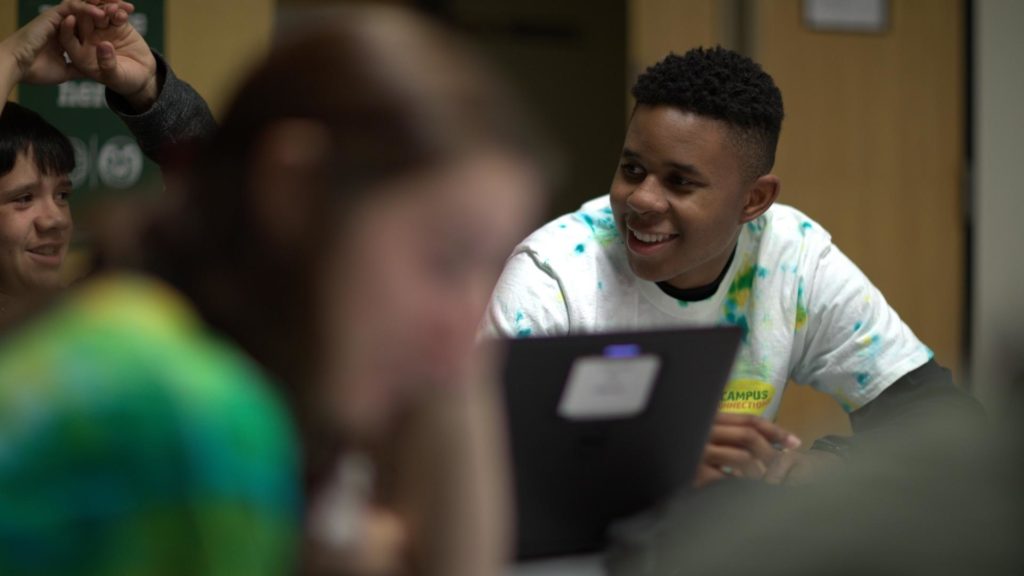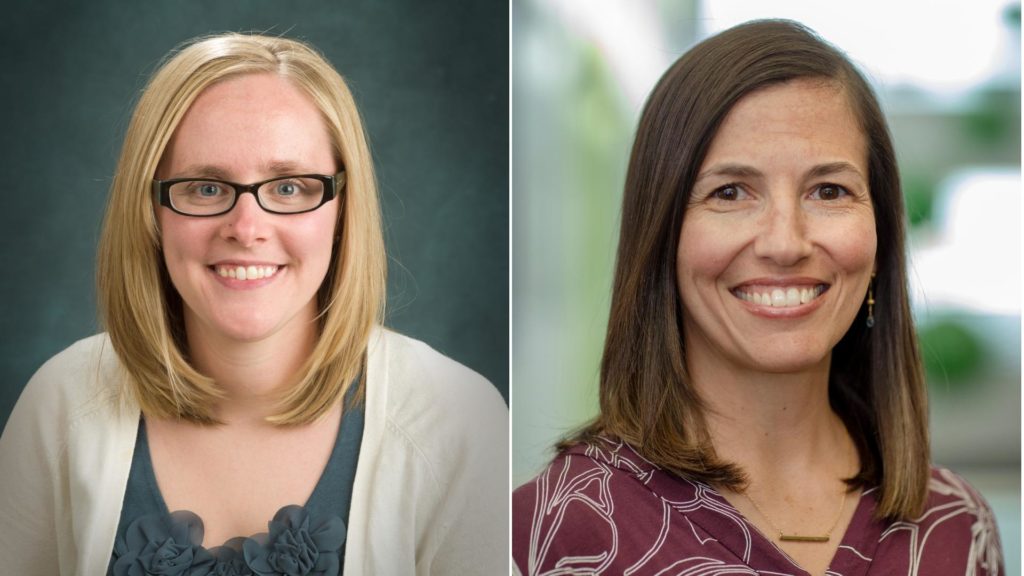
Reagan Miller has received a Ruth L. Kirschstein National Research Service Award (NRSA) Individual Predoctoral Fellowship, a highly competitive national award from the National Institutes of Health, to support her dissertation work from Fall 2021 to Spring 2023. This fellowship will fund Miller’s time and tuition as well as give her a small institutional allowance. The purpose of the NRSA award is for recipients to obtain individualized training to assist in their future research successes.
“This is a career launching grant,” said Miller. “This helps to make me extremely competitive in the job market because I can say that I’m actually refining my skills in these very specific ways.”
Miller is a fourth year Ph.D. student in the Applied Development Science Program in the Department of Human Development and Family Studies at Colorado State University. She received her M.S. from the CSU HDFS Marriage and Family Therapy program in May 2021.
Researching how mindfulness interventions can help adolescents with stress
Miller has worked with teens and adolescents since she first started doing research as an undergraduate at Virginia Tech, both in the lab as well as in the community mentoring at-risk youth. After graduation, she accepted a research position at Children’s Hospital Colorado.
“I saw a lot of children come in with mental and physical health concerns,” said Miller. “They had a hard time with regulating their emotions, and I thought they could benefit from some mindful awareness.”
The title of Miller’s project is, “Ecological Momentary Assessment of Mechanisms of Change during a Mindfulness-based Intervention for At-risk Adolescents.” This project aims to understand how a mindfulness-based intervention can help adolescents maintain mindfulness and healthy emotion regulation in moments of stress.
“There has always been a very large pull for me to understand this,” said Miller. “In the world we live in today, rates of mental health problems among teenagers are really high, and I believe that there is something we can do about this. I also have two younger sisters, so this has personal significance to me.”
Miller’s proposal for this award was based around the project Learning 2 Breathe, headed by Rachel Lucas Thompson and Lauren Shomaker, faculty members in the Department of Human Development and Family Studies, which researches how mindfulness techniques can help teens at risk for emotional and behavioral concerns. The grant works specifically with Campus Connections, a mentoring program in the department that helps youth in the community.

A Campus Connections mentor during a group workshop.
“We know that mindfulness programs can help to improve mental and physical health,” said Miller. “But there is less known about why these programs are working, so I began to look at a lot of the mechanisms behind why mindfulness interventions might work.”
To the Learning to Breathe project, Miller added her own piece and oversees a team of graduate and undergraduate studies in its implementation. Miller’s addition includes around 80 youth participants in Campus Connections, having them download an app on their phone to measure stress, mindfulness, and emotion regulation under the guidance of Lucas-Thompson and Shomaker. The app sends the youth three messages a day over a seven-day period at the beginning of the intervention, again in the middle of the intervention, and once more at the end of the intervention.
“Basically, this gives us momentary measures of mindfulness, how people regulate their emotions, and how stressed they are.”
After only four rounds of the Learning 2 Breathe program, teens reported having significant improvements in their PTSD (post-traumatic stress disorder) symptoms as well as some elements of executive function and emotional regulation.
“It feels like I’m doing my life’s work,” said Miller. “This is what makes me the most excited and happy, to be able to work one-on-one with these kids and have a more global impact with the research.”
Assistance from mentorship and the College of Health and Human Sciences
The Learning 2 Breathe project came to fruition when Miller attended a mindfulness conference at CSU and ran into Shomaker and Lucas-Thompson.
“The three of us started talking, and I mentioned that I would really like to do a project on mindfulness within Campus Connections,” said Miller. “That is what I want to do for my entire life, which feels weird to identify as a graduate student.”
After the conversation, Miller sat down with Shomaker, Lucas-Thompson, and former faculty member Doug Coatsworth who all said, “so how can we make this happen?”
“I have a deep appreciation for the mentors who helped support me and this fellowship,” said Miller. “I am learning the most from them.”
Miller’s current mentors include Lucas-Thompson and Shomaker from the Department of Human Development and Family Studies, Mark Prince from the Department of Psychology, Erica Sibinga from Johns Hopkins University School of Medicine, and Jason Lavender from the Uniformed Services University of the Health Sciences.

Two of Miller’s mentors, Rachel Lucas-Thompson and Lauren Shomaker, who both received university awards this year.
Two of her mentors at CSU have received high recognitions recently from the university with Lucas-Thompson named ‘Mentor of the Year’ and Shomaker named a Monfort Professor. Following in their successes, Miller was awarded the College of Health and Human Sciences Dean’s Fellowship in 2020 for her mindfulness research. This competitive award was only awarded to two students and included $20,000 of support.
“The Dean’s Fellowship was pivotal in giving me time to look at this information and be able to publish that,” said Miller. “It also gave me to time to begin to write the NRSA, which took several months and several rounds of revision.”
The Dean’s Fellowship also allowed Miller to look at data, analyze it, and write three journal articles on her findings, looking at the effects of mindfulness interventions that had be interrupted by the COVID-19 pandemic. Findings included health behavior impacts to adolescents to sleep and physical activity.
Miller also received the “Outstanding Graduate Student Award” from College of Health and Human Sciences in March 2021. These recognitions as well as her NRSA fellowship (parent F31) have allowed, and will continue to allow, Miller to dive into research and training, making her an expert in the field.
The Department of Human Development and Family Studies is part of CSU’s College of Health and Human Sciences.